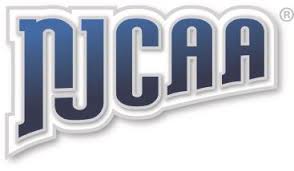So, You want to go JUCO?

I’ve recently watched my son go through the recruiting process and to quote him, “Whoever said this recruiting thing is fun, lied.” There are several factors that go into deciding what school is right for every student-athlete, sifting through options that align with their goals as well as being a fit with the coaching staff and school in general takes time and patience. As a parent, I had a good idea about programs at the NCAA Div-I, II, III as well as NAIA, but my JUCO knowledge was minimal at best. Growing up, it seemed as if kids that went JUCO might have had challenges with their grades and a JUCO provided them with an opportunity to play due to less stringent academic requirements. Over a period of time, when the athlete improved their grades they could move on to a four-year school if their talent level was a fit. I’m certain that example still exists, but JUCO does not exist solely to help kids check the GPA box so they might play elsewhere. During my son’s recruiting process, I learned about a level of college sports that is surrounded by coaches whose baseball IQ is off the charts and they truly care about the game & their players. I’ve seen JUCO campuses around the country that are beautiful & welcoming, comparable to traditional four-year institutions. There are JUCO programs across the country whose talent levels rival NCAA Div-I programs and if you ask any Div-I coach, they’ll tell you the same. If you’re a parent or a player trying to understand more about what JUCO provides, I’m confident you’ll have a better feel after reading this article.
What would drive someone towards a JUCO vs a traditional four-year school (NCAA/NAIA)?
- JUCO has fewer restrictions around practice/workout. NCAA/NAIA have limitations on the number of hours a student-athlete can work on their craft. JUCO sports provide more time for players to work on their craft and get bigger, stronger, and faster.
- Late bloomer. The recruiting train has many stops. Typically, elite pitchers tend to get off the board first at the Div-I level followed by other positions committing throughout the course of their high school career. More times than not, Div-II, Div-III, NAIA and JUCO commitments will come later in a student-athlete’s high school career. For the individual who gains strides later in their high school career, slots for Div-I programs may be limited. However, not to worry, it’s a marathon not a sprint. The early bloomers whose velocity was above average their freshman year or the hitter whose body resembled a twenty-something-year-old man in 8th grade, may not have continued to develop throughout their high school campaign. The commitment that was once locked up at the next level might be short-lived if continued improvement and development do not occur and that can potentially open up a spot where a JUCO player can fill nicely.
- Draft Aspirations. If a player has aspirations of playing professionally, playing for a year or two at a JUCO may help them achieve their dream quicker. Just this past spring, Cam Collier enrolled early at Chipola and was drafted by the Cincinnati Reds as the 17th pick a year earlier than if he would have waited to graduate from high school.
- Development. Usually smaller rosters so more opportunity for playing time and/or individual attention during practice.
- Academic. That’s right, I said academic. Usually, a smaller school so less big classes which allows for more personal relationships with instructors as well as easier access to instructors for help when it’s needed.
- Survival. Learning how to survive with resources that may not be the best fosters an appreciation for the little things that get taken for granted.
- Little Unknown. As JT Tessoff with PBR KY stated, “There are zero unknowns after you are a juco bandit. It can turn you into a bad Son of a Gun that will fight for everything you get. I think it’s the best route for way more than 50% of the players that step on to a D1 campus”

At the end of the day after speaking with resources like NJCAA President Dr. Chris Parker & Dir of Championships Rod Lovett, JT Tessoff (PBR KY), Tad Slowik (PBR) and Western KY Head Coach Marc Rardin, I believe players of all sports that choose to play JUCO have a tremendous opportunity to compete at high levels, get a quality education and should they have aspirations to play beyond their allotted two years, the opportunities are there for the taking. In my conversations with these individuals, a common theme and potentially the most valuable attribute was a student-athlete’s ability to gain toughness by embracing the grind that is JUCO athletics. JUCO has been a quality option for quite some time and I am confident it will continue to gain momentum and allow student-athletes tremendous options well into the future.




